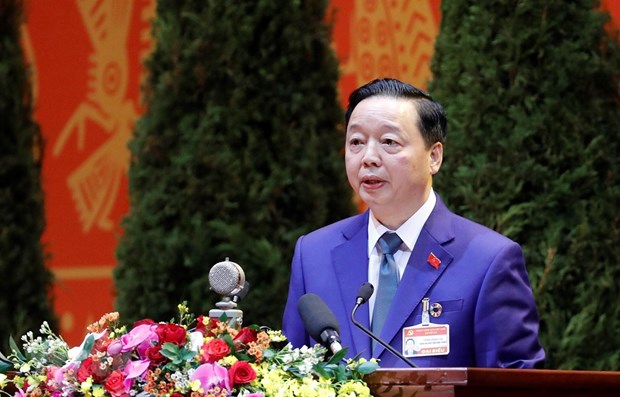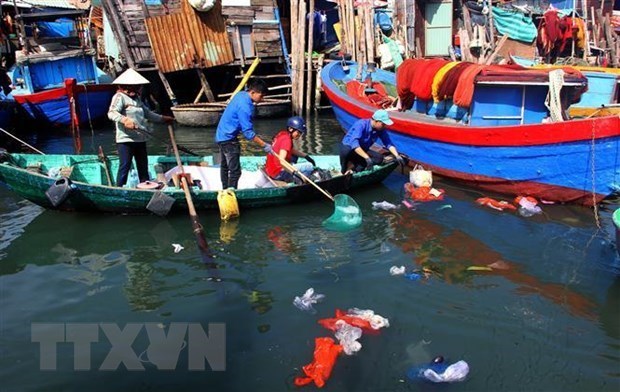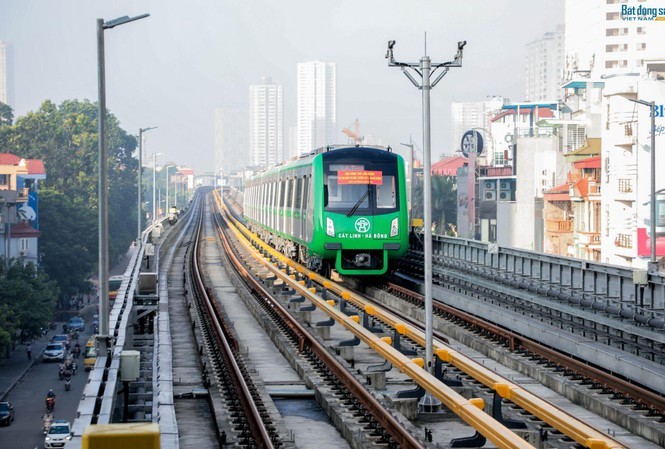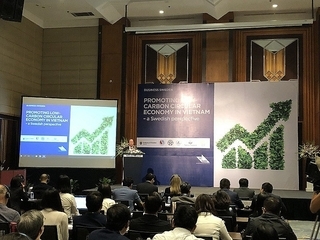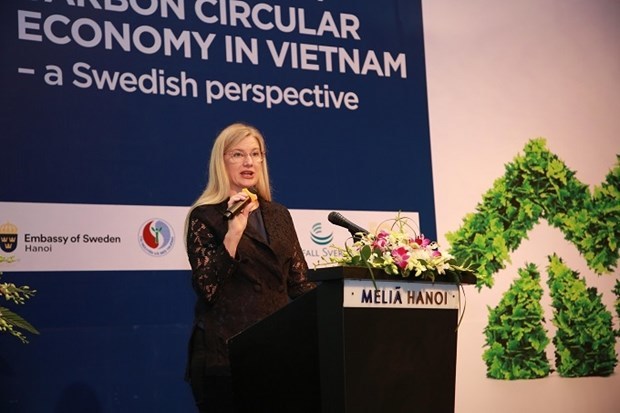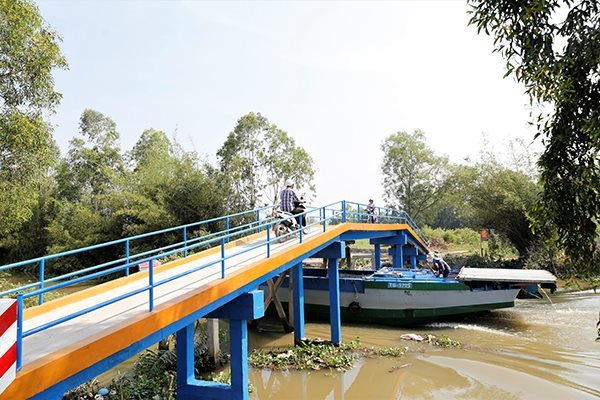- © Copyright of Vietnamnet Global.
- Tel: 024 3772 7988 Fax: (024) 37722734
- Email: evnn@vietnamnet.vn
circular economy
Update news circular economy
Local businesses still not pursuing sustainable development model
Only 2,000 out of 800,000 businesses have joined the Vietnam Business Council for Sustainable Development, according to the Vietnam Chamber of Commerce and Industry (VCCI).
Turning agricultural waste into cash
The collection and reuse of agricultural by-products not only helps reduce greenhouse gas emissions but also helps farmers have the opportunity to enrich themselves.
Officials highlight circular economy, macro-economic stability at Party Congress
Minister of Natural Resources and Environment Tran Hong Ha on January 27 emphasised the importance of a circular economy
Circular economy can create sustainable value in Vietnam: experts
Vietnam jumped five spots to reach 49th position in the world for sustainable development in 2020 on the UN Sustainable Development Solutions Network, partly thanks to the efforts of local businesses
Vietnam builds public private collaboration to address plastic waste
 A Memorandum of Understanding (MoU) to build public private collaboration towards circular economy in plastic waste management was signed in Hanoi on February 19.
A Memorandum of Understanding (MoU) to build public private collaboration towards circular economy in plastic waste management was signed in Hanoi on February 19.
Zero-waste startups: From good cause to circular economy
 Vietnam generates large amounts of waste every day – food waste, construction waste, old clothes and furniture, batteries, plastic bags and much more.
Vietnam generates large amounts of waste every day – food waste, construction waste, old clothes and furniture, batteries, plastic bags and much more.
Marine plastic pollution needs thorough solutions
 Vietnam has been listed as one of the top five plastic polluters in the world, so eco-friendly technical solutions and the use of bio-degradable plastic products need urgent promotion.
Vietnam has been listed as one of the top five plastic polluters in the world, so eco-friendly technical solutions and the use of bio-degradable plastic products need urgent promotion.
Vietnam's GDP is high, but uncertainties exist: economists
 Vietnam is among the countries with the highest GDP growth rates in the region.
Vietnam is among the countries with the highest GDP growth rates in the region.
Promoting low-carbon circular economy in Vietnam with a Swedish perspective
 Forming public-private partnerships is said to be a major solution for the development of the low-carbon circular economy in Vietnam.
Forming public-private partnerships is said to be a major solution for the development of the low-carbon circular economy in Vietnam.
Vietnam urged to promote circular economy
 Vietnam should act fast to switch to the circular economy, heard a workshop on promoting the no-carbon circular economy held in Hanoi on November 12.
Vietnam should act fast to switch to the circular economy, heard a workshop on promoting the no-carbon circular economy held in Hanoi on November 12.
Circular economy deemed optimal solution for Vietnam towards green economy
 The Vietnamese government has taken actions to tap the US$4.5-trillion market potential generated by circular economy, said an expert.
The Vietnamese government has taken actions to tap the US$4.5-trillion market potential generated by circular economy, said an expert.
Firms shouldn't let circular economy go to waste
 Tran Thi Binh, 60, who lives in Ha Noi, has no idea about the circular economy but now brings her canvas bag shopping instead of taking plastic bags from the supermarket.
Tran Thi Binh, 60, who lives in Ha Noi, has no idea about the circular economy but now brings her canvas bag shopping instead of taking plastic bags from the supermarket.
In Vietnam, business must be the center of all policies
 The Ministry of Planning and Investment (MPI) is drawing up a plan to increase Vietnam’s national productivity, which remains at an alarmingly low rate compared with neighboring countries.
The Ministry of Planning and Investment (MPI) is drawing up a plan to increase Vietnam’s national productivity, which remains at an alarmingly low rate compared with neighboring countries.
Enterprises lack legal framework for circular economy model
 Many enterprises are trying the circular economy model to save input materials and strive for sustainable development, but progress is impeded by the lack of a leader.
Many enterprises are trying the circular economy model to save input materials and strive for sustainable development, but progress is impeded by the lack of a leader.
Vietnamese businesses urged to join circular economy
 Vietnamese businesses cannot stand outside the circular economy, especially in the context of global economic integration with commitments on ecological and environmental safety standards through free trade agreements.
Vietnamese businesses cannot stand outside the circular economy, especially in the context of global economic integration with commitments on ecological and environmental safety standards through free trade agreements.


